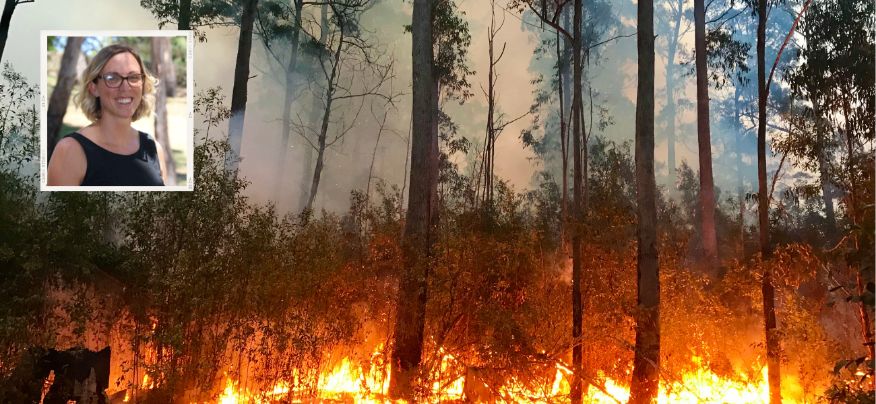The first Australian trial of a community-based model for disaster recovery could herald a new response to devastating events like the recent North Coast floods.
Project Phoenix focuses on building community cohesion and improving mental health in New England communities affected by the tragic Black Summer Bushfires three years ago, but promises bigger lessons on how to withstand other climatic catastrophes.
Associate Professor in Clinical Psychology at the University of New England (UNE), Suzie Cosh, said the model was developed by Courtney Welton-Mitchell from the Colorado School of Public Health and was successfully deployed in the wake of the Haiti and Nepalese earthquakes. It will now be tailored to the experience of bushfires in rural Australia, focusing initially on the Armidale Local Government Area.
The trial will be informed by several research projects into climate change distress and its impacts by members of UNE’s clinical psychology team, which found, not surprisingly, that distress has lingered long after the bushfires, manifesting in higher rates of depression and substance mis-use.
Our UNE Psychology Clinic is still receiving referrals from people who were first drought and then bushfire-affected.
“The bushfires have had a devasting impact on local wellbeing and mental health,” Associate Professor Cosh said. “Our UNE Psychology Clinic is still receiving referrals from people who were first drought and then bushfire-affected. We hope this community program will aid recovery but also preparedness for the next climatic event."
“It is well documented that once you have been exposed to one trauma, the next one will greatly increase your chances of getting PTSD (Post Traumatic Stress Disorder) or other disorders as the stressors compound. We will experience more and more of these events as our climate changes and what we learn from Project Phoenix will help us to maintain mental health in the longer-term.”
Building peer-supported networks & social cohesion
The program is designed to be adapted to suit local scenarios and contexts. After they consult extensively with community leaders and stakeholders to ensure it is fit-for-purpose, the UNE team will host a series of workshops for those impacted by bushfires.
“This model relies on building peer-supported networks and social cohesion,” Associate Professor Cosh said. “Community leaders are trained to deliver the program to a broad cross-section of people who have suffered trauma and are vulnerable to distress, ensuring that the knowledge stays within the community.
Project Phoenix is a great example of building strength and capacity within a community, independent of government funding.
“Often the people who come in after a disaster are so removed from a community’s experiences that policies are not relevant to their needs. Project Phoenix is a great example of building strength and capacity within a community, independent of government funding.”
As well as practical advice on preparing for bushfires and what to do if they are threatened, workshop participants will learn psychological coping skills and how to build resilience.
“Research from other bushfires shows that there can be residual distress and disorders developing four and up to 20 years later,” said Associate Professor Cosh. “People don’t just fix the fences and move on with life. For many, the Black Summer Bushfires are still very real.”
Community consultation will be conducted throughout 2022, then the model adapted and evaluated for the delivery of workshops later in the year.


